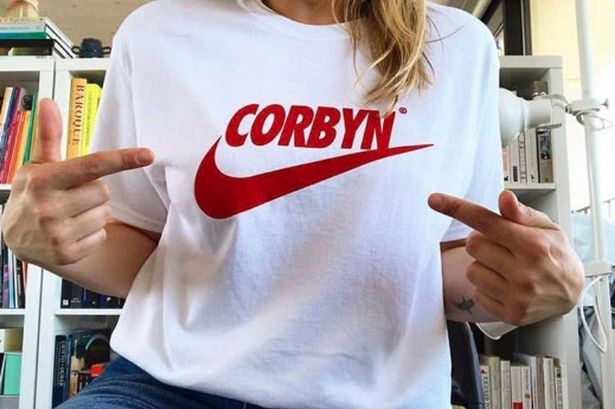Ironically, fashion has an image problem. Whilst we are living in strikingly partisan, politically-charged times, it is easy to think of fashion houses as inhabiting some kind of apolitical bubble, disconnected from the society in which they exist. High fashion houses are the easiest to point fingers at, with their avant-garde (and incredibly expensive) creations guilty of coming across as inaccessible and aloof. Ultimately, the impression that luxury fashion is largely unmoved by political or social matters is one that is hard to shake.
In fairness, there are signs that at least some of those within the industry are at least trying to cast light on social issues through their work. Raf Simons launched a show in New York last year aimed at inspiring young Americans to take action against the US president. Dior’s artistic director Maria Grazia Chiuri has embarked on a new, notably feminist direction for the house, seen via t-shirts emblazoned with WE SHOULD ALL BE FEMINIST in 2016. But whilst developments such as these are welcome, the messages conveyed by the pieces exhibited are largely oblique (the Dior t-shirt aside). The supposed intentions of top-end designers are often belied by products that offer no clear political message. This pattern has trickled down to high street brands, many of whom will stock ‘woke’ t-shirts and sweats, but these deal in only the most easy-to-digest of platitudes (often centred around vague axioms, telling us to recycle or otherwise save the planet).
Some brands claim to be political but say very little. There is a very real appetite for protest, for politics, and for change amongst the public (and amongst a newly-energised youth in particular), yet corporate fashion doesn’t seem to share such sentiments. But there is one area of fashion that more closely matches the public’s attitude for social justice – streetwear. If the political convictions of high-end fashion can be disingenuous, those adorned onto streetwear can be the opposite. Instead of reducing political messages to trendy but neutral slogans, streetwear bootlegs allow today’s starkly partisan political climate to be truly reflected.

A discussion of bootlegging cannot be had without mention of the brand that pioneered it in the UK, Sportsbanger. Sportsbanger uses its bootlegs to reflect the abrasive political sentiments held by much of the disaffected youth of today – with the current Conservative government often on the receiving end. T-shirts such as one proclaiming CONSERVATIVES ARE TARGETING EVERYONE (reworking a police notice stating ‘Phone thieves are targeting London venues’) and another adorned with the NHS and Nike logos has the intention of supporting the junior doctors that are currently at odds with the government.

Further, the independent Northern menswear brand Casual Connoisseur last year reflected its Labour-voting ideals by releasing a football shirt featuring the National Rail logo as a centrepiece, in an attempt to “highlight the need to re-nationalise the old railways”. That wasn’t the only Corbyn-inspired example of bootlegging to happen last year; perhaps the most iconic example of the bootlegging phenomenon of all was the Corbyn mash-up of the Nike logo released by Bristol Street Wear. It was everywhere. Sported by celebrities and the recipient of national media attention, one of the tees has since been acquired by the V&A Museum in London as an example of how young people were “engaged in a way not seen at previous election campaigns”. The next big bootleg tee is surely around the corner. Perhaps the success of these works will inspire fashion’s bigger players to get off of the fence, and use their wide-reaching influence to address the causes they claim to support. If not, streetwear will continue to lead the way.
Dan King
Image: Bristol Street Wear

